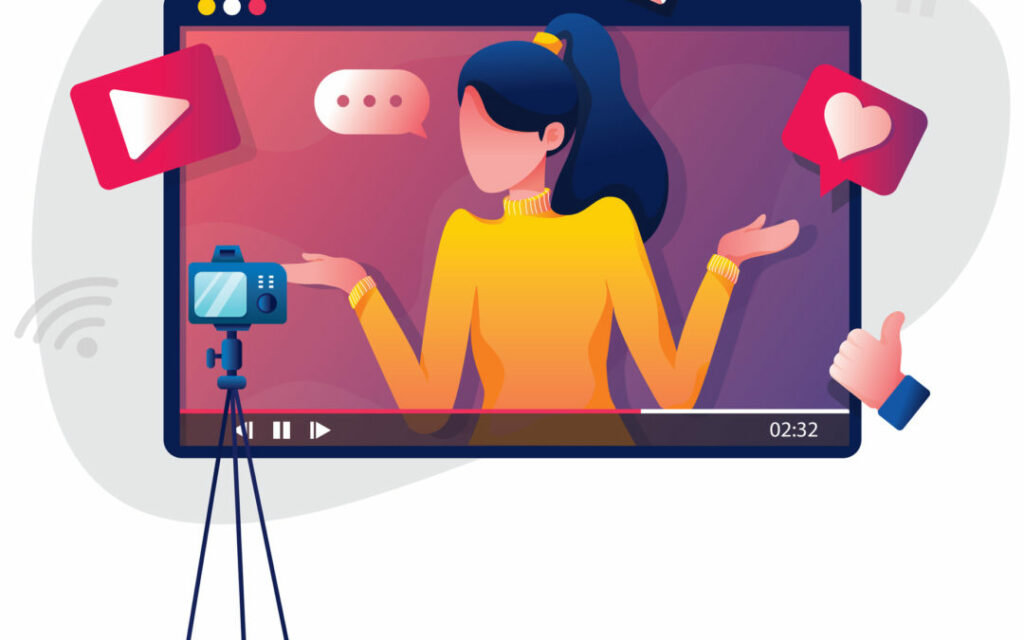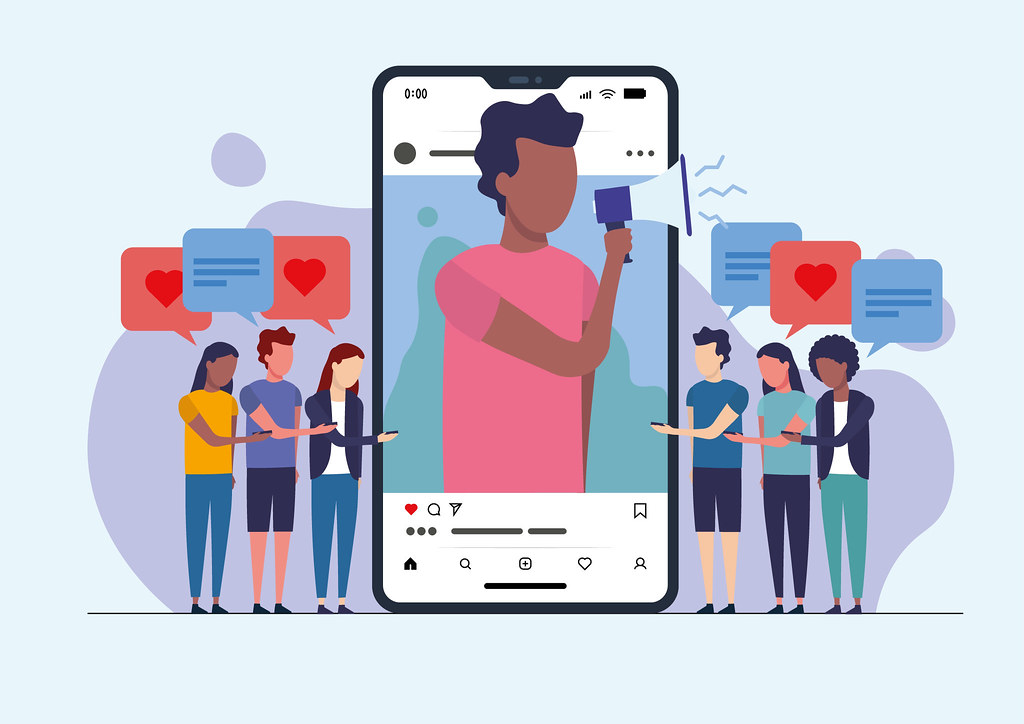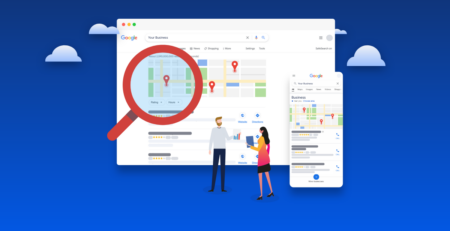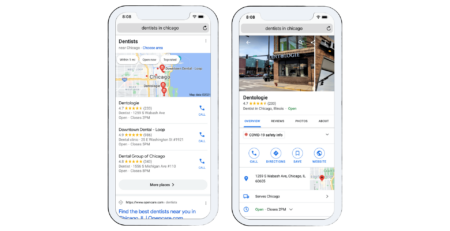Social media’s been huge, dominating our lives and the economy. One big change it brought? Influencer marketing. Basically, popular online figures promote products, like recommending a cool new gadget on their channel. This can be amazing for businesses, helping them reach new customers and boost sales. But like any tool, it has downsides too.
Let’s dive into this article to see the good, the bad, and the bottom line of influencer marketing.
Influencer Marketing Scope in 2024
Influencer marketing in 2024 will be all about hyper-targeting and deeper connections. Forget mass blasts and gimmicks. Brands are focusing on niche influencers with genuine communities and building long-term partnerships. Micro-influencers with engaged followings are taking center stage, driving higher engagement and ROI than their mega-influencer counterparts.
Authenticity is key; consumers crave relatable content and trust transparent collaborations. Expect to see more brand ambassadorships, co-created content, and data-driven strategies for measuring success. The future of influencer marketing lies in quality over quantity, building lasting relationships, and fostering genuine connections between brands and audiences.
Facts and Figures of Influencer Marketing
- With 93% of marketers using it and over 83% finding it effective, it’s no fad.
- The influencer marketing world is estimated to reach $15 billion in 2024.
- 61% relying on their recommendations highlights the power of their endorsement.
- Gen Z and Millennials following them, and brands increasingly using AI for identification, suggest their growing importance.
- Influencer passion (36%) and cost-effectiveness (22%), as key influencer selection criteria, emphasize the need for genuine partnerships.
- From influencer identification to campaign execution, AI is streamlining the process.

Pros and Cons of Influencer Marketing
You want to grow your brand, but it’s not easy. That’s why many businesses are turning to influencers for help. But is influencer marketing a good strategy for you? Let’s weigh the pros and cons.
Pros of Influencer Marketing
Take a look at some of the pros and cons of using influencer marketing to market your product.
Audience Access
Imagine stepping into a bustling stadium packed with potential customers, not through advertising gates but through a VIP entrance hosted by trusted friends—the influencers. Their dedicated followings become your instant audience. Suddenly, brand awareness isn’t about shouting across a field; it’s about engaging in genuine exchanges within thriving communities, one influencer handshake at a time. That’s the magic of audience access.
Trust Boost
Forget the hard sell; influencer endorsements are like whispered secrets from a trusted friend. Instead of blaring commercials, they weave your brand story into their everyday lives, making it relatable and authentic.
Suddenly, your product isn’t just a logo; it’s the solution to their latest challenge, the missing piece in their perfect outfit, the spark in their next adventure. The trust they’ve built with their audience spills over onto your brand, transforming skepticism into curiosity, then desire
Authentic Stories
Traditional ads scream; influencers whisper. They tell real stories about your brand and how it helps them in their everyday lives. They use your product when they go camping, cook, or do something fun.
People like these stories because they can relate to them. In these stories, your brand is more than a name; it is a friend, a helper, and a part of their life. And that, without using fake songs or smiles, is what makes people interested and loyal.
Budget-Friendly Buzz
Influencer marketing buzzes with budget-friendliness. Micro-influencers, with their laser-focused audiences, offer a targeted bang for your buck compared to the shotgun blasts of traditional media.
Plus, data-driven strategies help you find the perfect influencer fit, maximizing impact and minimizing wasted clicks. It’s like whispering to the right group instead of shouting into the void. So, partner smart, leverage data, and watch your brand blossom on a budget that wouldn’t break the bank.
Fast Results
One big perk of influencer marketing? Results come quickly. Influencers often have the skills you want, like knowing the industry, reaching your target audience, and being tech-savvy marketers themselves. They’ve built their success on these skills.
So, working with them takes less handholding and training on your end. Think of it like hiring seasoned pros who hit the ground running, boosting your brand right away.
Cons of Influencer Marketing
Let’s take a look at some downsides of influencer marketing
Control Conundrum
While partnering with influencers opens doors to new audiences, it also involves relinquishing some control over your message. Their unique voice and perspective can be a breath of fresh air, but if it clashes with your brand identity, it can create confusion and dissonance. Imagine a fitness brand suddenly promoting sugary snacks through an influencer known for their love of all things sweet – not the best alignment!
Authenticity Illusion
Forced pairings can backfire spectacularly. A luxury watch brand partnering with an influencer known for budget travel? Consumers will smell the inauthenticity from a mile away, damaging your brand image and eroding trust. Authenticity matters – partnerships should feel like a natural fit, not a marketing gimmick.
Fake Follower Fiesta
Inflated follower numbers are an influencer plague. Investing in someone with inflated metrics means your message reaches ghost audiences, leading to wasted resources and Chasing quick wins with temporary campaigns neglects the power of long-term relationship unreliable performance. Imagine paying top dollar to an influencer whose audience is mostly bots – not exactly the engagement you envisioned.
Short-Term Sprints
building. Think beyond viral trends and focus on fostering genuine connections with audiences through influencers who embody your brand values. Sustainability and trust, not fleeting fads, are the foundation of influencer marketing success.
Get the Most of Your Marketing Outreach
Overall, influencer marketing is evolving beyond just flashy endorsements. Brands are embracing authentic partnerships with niche influencers and leveraging data and AI for smarter targeting and deeper audience connections. It’s about fostering trust and genuine interaction, proving its lasting value in the marketing landscape.
Influencer marketing can help your brand a lot, but you need to use it right. Think about the good and bad things that can happen, pick the right people to work with, and be honest and loyal to them. That’s how you can make influencer marketing work for you and grow your brand.
Let our digital marketing experts guide you in forming meaningful partnerships, utilizing data-driven strategies, and nurturing genuine connections. Elevate your marketing outreach—reach out to us today!

















